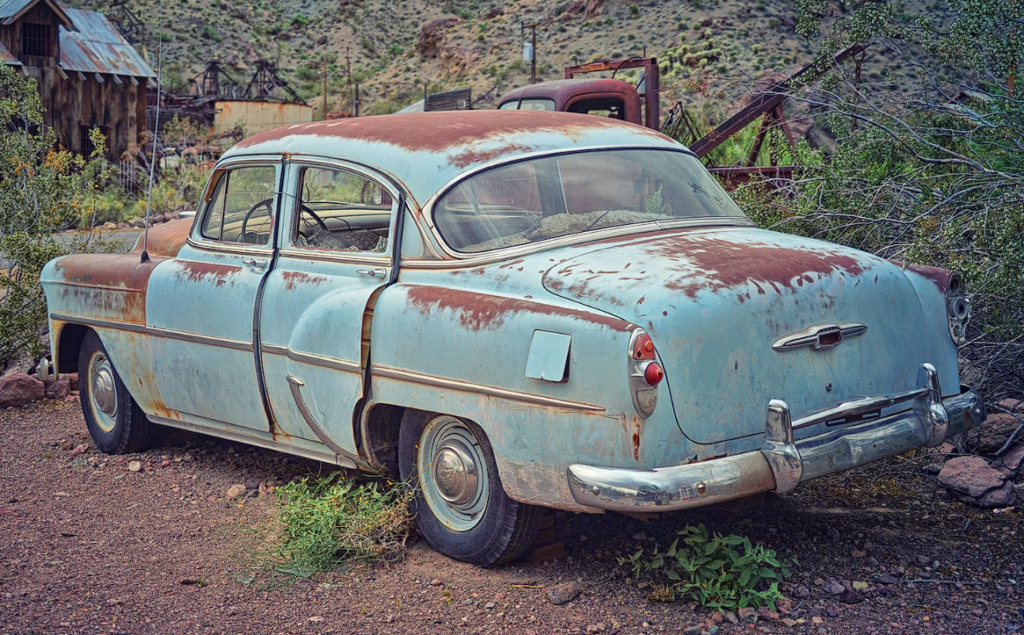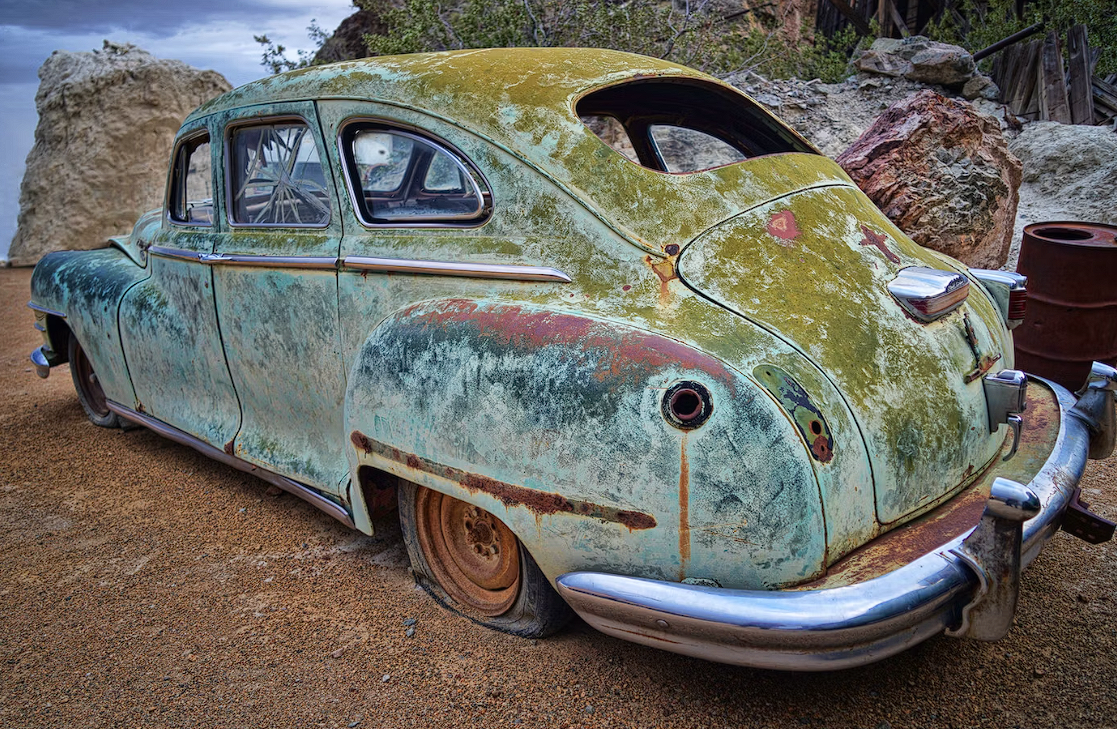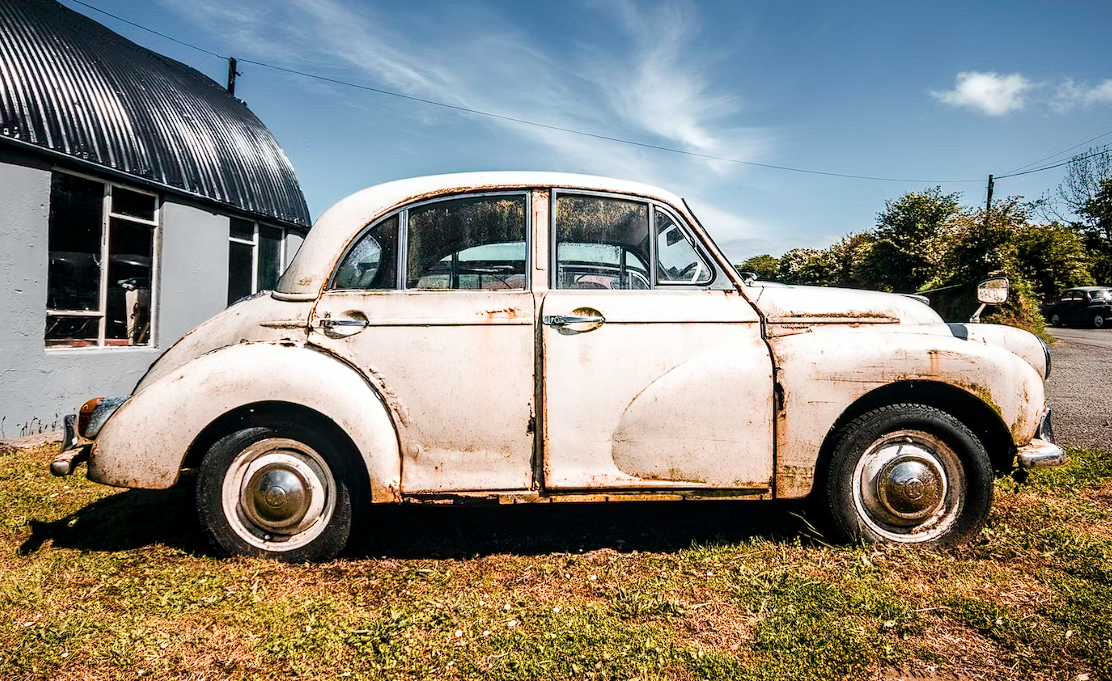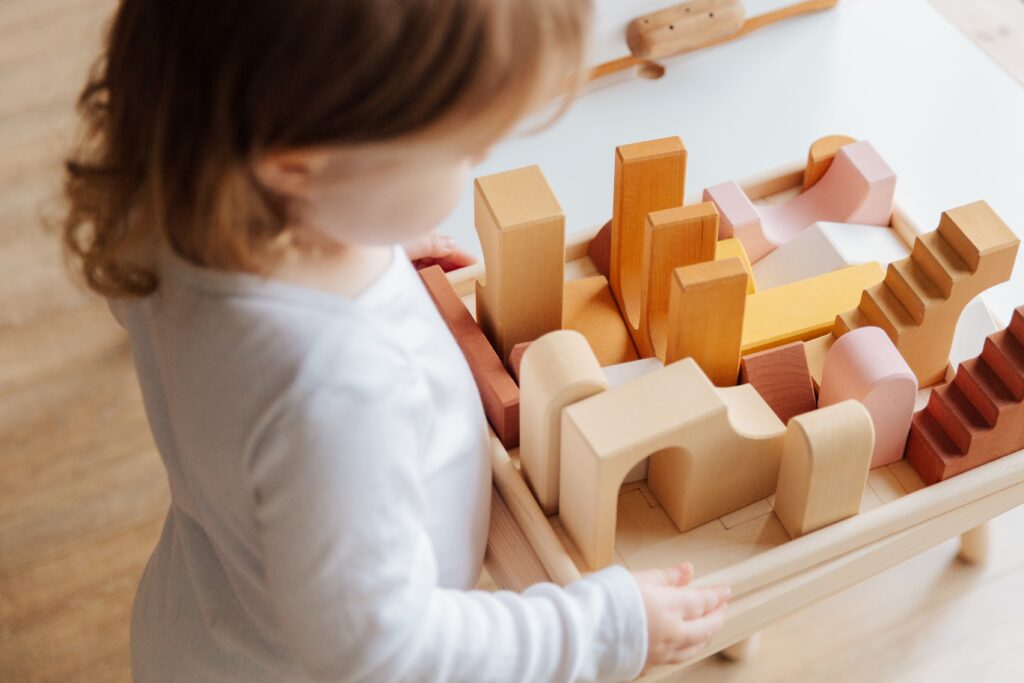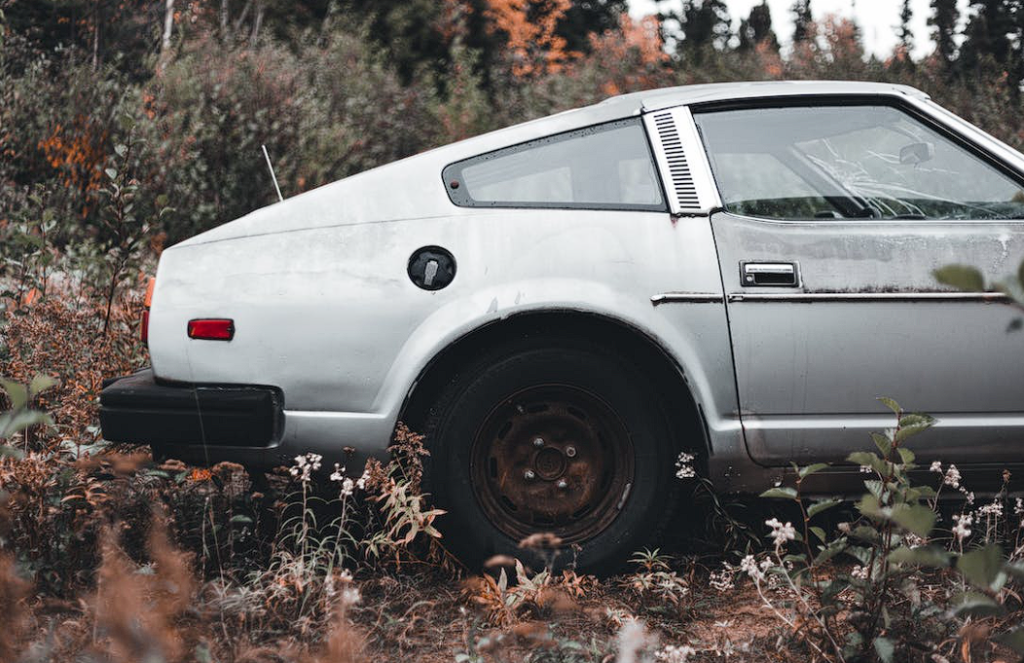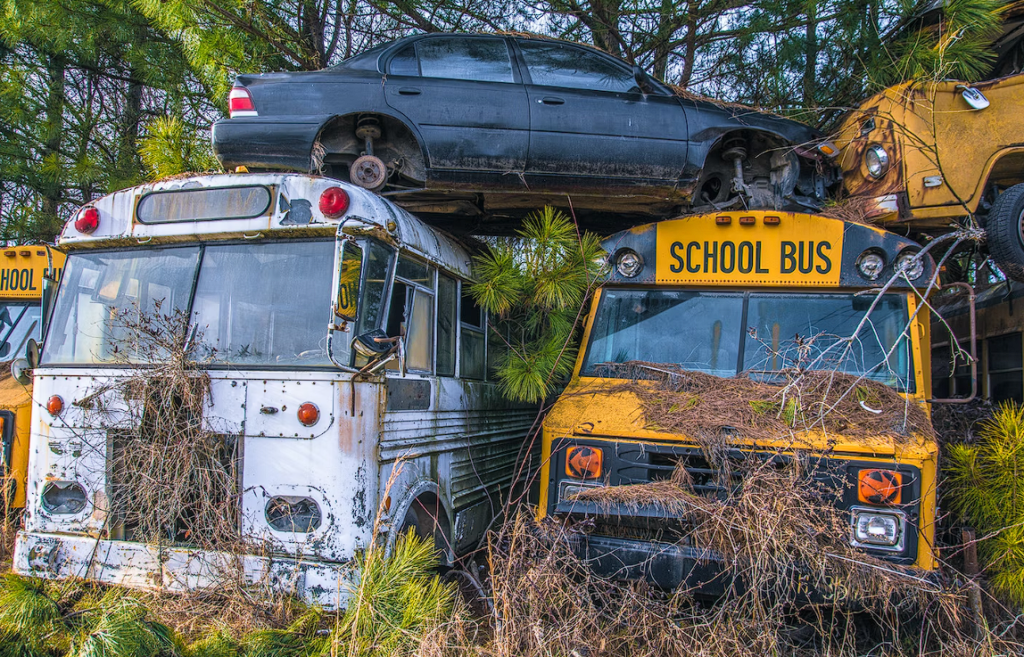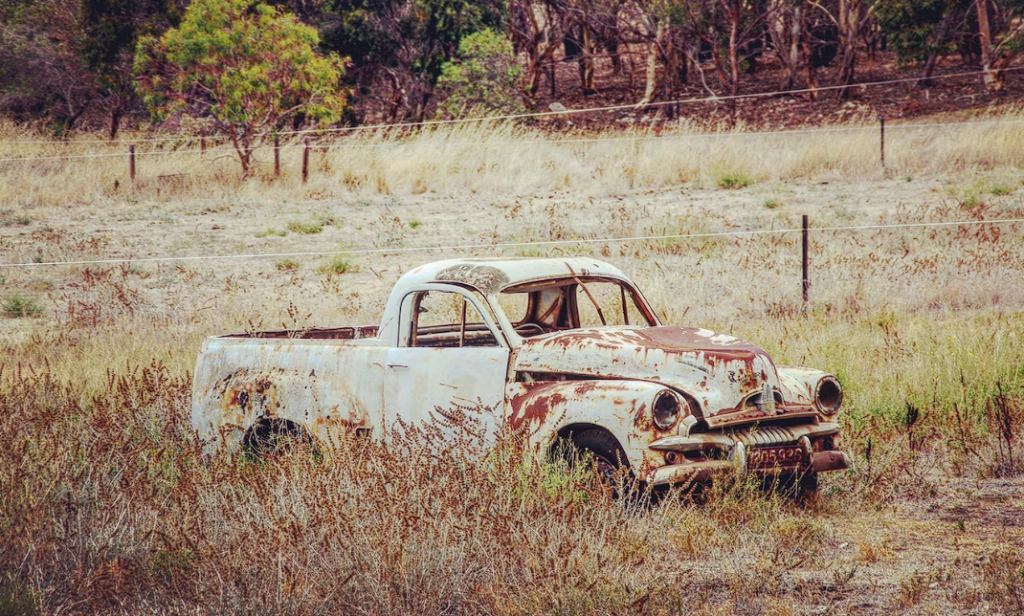Your car has been reliable and trustworthy throughout the years, but now it's time to say goodbye. It may be time to replace it because it's broken or outdated or you want something better. Unfortunately, getting rid of your car can be a major hassle if you need to become more familiar with the process.
If you're ready to get rid of your old car but need help figuring out where to start or what steps to take, this handy guide will show you the way.
Determine Your Car's Value
Determining your car is worth it is the first step towards getting rid of it. Having an idea of how much you can get for it will help you choose the best course of action. So how much is your car worth? Here are a few ways to find out:
Car Condition
It's easy to figure out that the condition of your junk car plays a major role in determining how much money you'll get for it. Of course, we know you're trying to unload a junk car, so we don't expect it to be in pristine condition. However, there is a difference between bad and extremely bad.
You may, for instance, have an old car that has been lying in your driveway for a while but is still functional in some respects. In that case, you can anticipate a fair offer. However, if you want to junk a car totalled in an accident, you can expect a much lower price and offer.
Valid Car Paperwork
Many people estimate a car's worth based on its make, model, and general condition. However, some factors determine a junk car's value, paperwork being one of the most important.
For instance, if you're trying to sell your junk car but need the title, you'll get a much lower price. Therefore, most car owners should look into getting a new title from the Department of Transport.
You can still sell your junk car even if you don't have the title, but you won't get as much for it. So it's important to plan before contacting a car removal service.
Make, Model, And Year Of The Vehicle
It's no secret that the major consideration in establishing your junk car's worth is the sort of vehicle in question. In addition, knowing the car's year, model, and the manufacturer is important.
The common understanding is that a vehicle's value increases with age and modernity. A junk buyer will pay significantly more for a vehicle that was manufactured in 2020 as opposed to a vehicle from 1986.
The value of your junk car is determined by more factors than just its age. As an illustration, consider the enduring popularity of some well-known brands. That is to say because the two vehicles were manufactured in 2011, that only sometimes makes them interchangeable regarding value.
For this reason, it is important to learn whether or not your prefered automaker's models have maintained their value over time. Classifieds are another place to look for a car you're interested in.
Parts Prices For Vehicles
Sometimes the cost of car parts can significantly impact your budget, even if your car is otherwise in good shape. For instance, if you want to junk a car, you'll get more money than someone who tried to do the same ten years ago because of the severe shortage of auto parts.
There is evidence of the car parts shortage everywhere you look. For instance, the cost of purchasing a car, having a car repaired, or even selling a junk car that still has working parts is all on the rise.
Your question about the value of a junk car can be answered more precisely if you learn whether or not similar auto parts are in high demand in your region.
Car Demand
As we mentioned before, the value of some makes and models of cars from some manufacturers can be fairly constant wherever you call home. However, vehicles in this condition are in high demand due to the constant need for replacement parts. As a result, the value of your junk car will increase significantly if you own one of these vehicles.
Even if your vehicle is in low demand, you will still get a good price. As mentioned, we lay out everything that could affect the final price we offer you for your junk car. To assess your junk car accurately, you must consider all relevant factors simultaneously.
Choose Your Disposal Option
There are a few ways to get rid of an old car, each with its timeline and prerequisites. Common choices include the following:
Donating The Vehicle
One option is to give the vehicle to a charity. You can do some good for the community and get rid of your old car if you go this route. It would be best to look into charitable organisations that accept car donations before giving your vehicle to one of them. Some organisations will only accept running vehicles as donations, while others will take anything they can get their hands on. Find a charity you like and get in touch with them to arrange a donation.
The charity will ask that you sign over the title to the vehicle. They may also ask for proof of ownership, such as a copy of the vehicle registration or title. After finalising the donation, you can claim a tax deduction based on the vehicle's fair market value and the charity's procedures.
Donating your vehicle to a good cause is an excellent way to get rid of it and help others at the same time. It's important to follow the correct procedures when donating a car. Follow these easy steps to donate a car:
Looking For Qualified Charities
Finding a charity that will gladly accept your car donation is the first order of business when giving one away. Finding a charity that accepts vehicle donations is important because not all do. To get started, look up organisations that accept vehicle donations online in your area. You can also get referrals from people you know who have donated vehicles. Think about the credibility of the organisation, the kinds of causes they support, and the requirements for donating.
Making Contact With The Charity
The next step is to contact the chosen charity and discuss the details of giving them your car. The charity can be reached via its website, email address, or phone number. The organisation you're donating to will want to know the vehicle's year, make, and condition. They may also request proof of ownership and registration for the vehicle. The charity will use this data to decide whether or not the vehicle qualifies for its programme.
Transferring The Vehicle
Transferring legal ownership of the vehicle to the charity is the next step after making the first contact and providing the essential details. Transferring car ownership to a nonprofit organisation is as simple as signing over the title. The charity may also request a release of liability, absolving you of responsibility for the vehicle after its donation. Finally, the charity may ask you to bring the vehicle to their office or arrange a tow. The charity will then decide whether to sell the vehicle or put it to use in their programmes.
Selling The Car
Selling your car is a great option if you need to get rid of it, but it is still in good working condition. With this choice, you can make money towards a new car or other expenses. First, however, you need to know how much your car is worth before you sell it. You can do this by looking up the prices of comparable vehicles or employing a car valuation tool online.
After you know how much your car is worth, you may promote it for sale on various websites, in newspapers, and on social media. When advertising your vehicle, be as specific as possible about the make, year, model, mileage, and other features that may interest potential buyers.
Potential buyers can make better choices with this data in hand. After finding a buyer, you should officially transfer ownership by signing over the title.
If you're looking for a way to get rid of your old car and make some cash at the same time, consider selling your car. The process of selling a car entails the following steps:
Determine The Car's Value
Find out what your car is worth before you try to sell it. The first step is to find out how much your car is worth in today's market. Depending on your vehicle's year, make, and condition, various online resources can give you an idea of how much it's worth. A professional appraisal is another option for determining your car's worth.
Advertise The Car
After settling on a price for your vehicle, the following step is to put it up for sale. Whether you choose to use social media, online classifieds, or traditional print media, there are plenty of places to get the word out about your car for sale. When advertising your vehicle, be specific about its year, make, model, and overall condition. Several professional-quality photographs of the vehicle should also be included. If you want to save the time of potential buyers, be forthright about the car's flaws and issues.
Completing The Sale
After putting up an ad, the next step is to sell the car. Make plans to meet the interested buyer in a public spot so they can check over the vehicle. If the buyer is serious about buying the car, you should discuss the price and payment method. The buyer also needs the vehicle's title and bill of sale. Sign over the title to the buyer after receiving payment and giving them a receipt. If you want the change of ownership to be legitimate, you must ensure all the paperwork is filled out correctly.
Junking The Car
You should junk your car if it's not running properly anymore. Junkyards are happy to purchase vehicles beyond economical repair to salvage usable components. Find local junkyards online and give them a call to see if they will buy your junk car. You'll need to give the junkyard specifics about the vehicle you're bringing in, such as its make, model, year, and condition.
They may also ask for proof of ownership, such as a copy of the vehicle registration or title. Next, remove all your belongings from the car and drain all fluids, including oil and gas, once a price has been agreed upon. The auto-wrecking yard will then dispatch a tow truck to collect the vehicle.
When a car reaches the point where it is neither repairable nor marketable, junking is an option. To "junk" a car means to sell it to a junkyard to recycle its useful components. Here are the measures are taken when discarding a car as scrap:
Researching Junkyards
Finding a junkyard to sell your car to is the first step in junking your car. Find local junkyards by doing an internet search. In addition, you can seek the advice of loved ones who have already junked a vehicle. Some things to consider when looking into junk yards include their standing in the community, and the makes and models of vehicles they buy, and the procedures for pickup and payment.
Getting In Touch With The Junkyard
Contacting a junkyard you're interested in selling your car to is the next step after making your selection. There are multiple ways to get in touch with the scrapyard: online, via email, or over the phone. First, you'll need to give the junkyard specifics about the vehicle you're bringing in, such as its make, model, year, and condition. They may also request proof of ownership and registration for the vehicle. The junkyard will use this data to decide whether or not to purchase the vehicle.
Getting The Car Ready For Pickup
After contacting the junkyard and setting up the pickup, the next step is to get the car ready for removal. The first step is to empty the vehicle of your possessions and clean it thoroughly. The plates were removed, and the local transportation office cancelled the registration. A release of liability, absolving you of responsibility for the vehicle after the junkyard has picked it up, may also be requested. The car will be sold for parts or scrap metal once the junkyard has picked it up.
Prepare Your Car For Disposal
After deciding how to get rid of your old car, the next step is to get it ready for disposal. Here are some potential next steps:
Take Personal Belongings
You could still have important belongings in your car even if you haven't used them. Check the trunk and glove compartment, and remove anything you plan to keep. Check the car's floor for dropped items and the area under the seats for lost items.
Remove any trash you find, even if the vehicle is empty of anything of value or necessity. Even if your dealer is okay with cleaning the car before buying it, it will look better to potential buyers if it has been.
Take Off The Licence Plates.
Before handing over your vehicle to be crushed, remove the plates. This eliminates the possibility of criminals or others stealing and reusing the plates on another vehicle.
Consider Removing Useful Components.
Even if you want to avoid (or need help with how) tearing apart your car to resell or reuse its mechanical components, some items you may pull from the vehicle could be useful. For instance, keeping a spare tyre in the trunk could be useful in the future.
Consider removing your car's sound system and GPS if they are of sufficient quality and can be removed. You can still profit from them even if you don't put them in your next vehicle.
If you've installed custom seat covers, remember them. You can reuse them in your new vehicle if they are in good condition. It's fine to leave them if they aren't too expensive and aren't bothering you too much.
Drain The Gas Tank
The gas tank should be drained to a level between half-full and empty. Doing so will reduce the risk of a fire starting during disposal. After the tank has been drained, any remaining fuel should be transferred to jerry cans or another fireproof container and prominently labelled as flammable.
Cancel Your Vehicle Registration And Insurance.
Cancel your vehicle registration and insurance after removing all your valuables. This will help avoid potential legal complications.
Get Ready To File Paperwork
Documentation must be completed after the total loss of your vehicle. Forms are typically filled out in triplicate, with one copy kept by you, one by the car wrecker, and one sent to the local Department of Transport.
Conclusion
The most important part of this guide is how to figure out how much a junk car is worth. This means figuring out the car's condition, whether or not the paperwork is accurate, the make, model, and year of the car, and the make, model, and year of the car. Cars get more valuable as they get older and more up-to-date, so it's important to plan ahead before calling a car removal service. The worth of a junk car depends on more than just how old it is. It's important to find out if the models from your favourite car company have kept their value over time.
Even if your car is in good shape otherwise, the cost of parts can have a big effect on your money. If repair parts are always needed for your car, the number of people who want to buy it can go up by a lot. To correctly figure out how much a junk car is worth, you need to look at all of the relevant factors at the same time.
Pick the way you want to get rid of an old car. Find a charity that accepts car donations, get in touch with that charity, give the charity formal ownership of the car, and bring the car to their office or set up a tow. These are the most important things to do when donating a car.
When donating a car, it's important to follow the right steps, like looking for qualified charities, getting in touch with the one you choose, transferring formal ownership of the car, and claiming a tax deduction based on the car's fair market value and how the charity does things. You can get money for a new car or other costs by selling your old car.
It means figuring out how much the car is worth and putting ads for it on different websites, in newspapers, and on social media. After you find a buyer, you should sign over the title to make the sale official. Here are the steps you need to take to sell a car: Find out what the car is worth. Find out how much the car is worth by looking up the prices of similar cars or using an online car estimate tool.
You can use social media, online classifieds, or classic print media to get the word out about the car. Meet up with the interested buyer in a public place and talk about the price and how they will pay. After getting paid and getting a check, sign over the title to the buyer. When a car can't be fixed or sold, one choice is to throw it away. To "junk" a car, you must study, get in touch with someone, and get the car ready to be picked up.
When you do research on junkyards, you should find out how they are known in the community, what kinds and types of cars they buy, and how cars are picked up and paid for. To get the car ready to be picked up, you need to take everything out of it and clean it well.
The most important facts are that the plates have been taken off, the registration has been cancelled by the local transportation office, a release of responsibility may be asked for, and the car will be sold for parts or scrap metal.
To get the car ready to be thrown away, you should take out any personal items, clean out any trash, take off the licence plates, and think about taking out any useful parts. After the car is totalled, take out valuables like a spare tyre, sound system, GPS, and custom seat covers. Drain the gas tank, cancel the registration and insurance, and get ready to file papers. Documents must be filled out in duplicates, and the driver must keep one copy and send the other to the local Department of Transport.
Content Summary
- Before getting rid of your car, you should determine its value.
- Car condition is a significant factor in determining the value of a junk car.
- Valid car paperwork is essential to obtain the maximum price for a junk car.
- The make, model, and year of the vehicle also play a vital role in determining its value.
- The demand for the car in the market, and parts prices for vehicles, affect their value.
- It is essential to consider all these factors simultaneously to assess your junk car accurately.
- There are various ways to dispose of an old car, including donation and recycling.
- Donating a car to a charity can help the community and give you a tax deduction.
- You should find a charity that accepts vehicle donations and complete the correct procedures.
- Recycling a car is also an environmentally friendly option.
- You should find a reputable car removal service and provide them with valid paperwork.
- You can sell a junk car to a car buyer and obtain the best price possible.
- To sell your junk car, you should research the potential buyers and provide accurate information about your car.
- You should be wary of scammers when selling your junk car and avoid sharing your personal information.
- Trade-in is an option if you're looking to purchase a new car.
- You can use online tools to determine the trade-in value of your car.
- Trading in can be convenient, but you may not get the best price for your old car.
- Private selling can also be an option if you want to get the best price for your car.
- You can list your car for sale on classified websites and provide accurate information about its condition.
- You should be prepared to negotiate with potential buyers when selling your car privately.
- Auctions are another way to sell a car, but you may not get the best price.
- You should research the auction house and set a reserve price when selling your car at an auction.
- Scrapyards can also buy junk cars.
- You should research the local scrap yards and compare their offers before selling your car to one of them.
- You should have the necessary paperwork and remove any valuable items from the car before selling it to a scrap yard.
- Selling a car for parts is another option, but it can be time-consuming.
- You should research the market demand for the parts and the potential buyers before selling your car for parts.
- Selling a car privately for parts can be more profitable than selling it to a scrap yard.
- Car manufacturers may also have a buyback program for old cars.
- You should research the car manufacturer's buyback program and provide accurate information about your car when applying.
- Some car removal services offer free towing of your car.
- You should research car removal services and compare their prices before choosing one.
Frequently Asked Questions
Cleaning your glasses daily is not mandatory, but it is highly recommended to prevent eye strain. Regular cleaning helps maintain optimal vision by removing dirt, oil, and smudges that accumulate on the lenses. By keeping your glasses clean, you ensure that your eyes can see through them clearly without the need for additional effort, reducing the risk of eye strain.
Keeping your glasses clean offers several additional benefits beyond preventing eye strain. Clean glasses provide clearer vision, enhancing your overall visual experience. Moreover, clean glasses reduce the risk of smudging your lenses or obstructing your view due to dirt and fingerprints. By maintaining clean glasses, you also extend the lifespan of the lens coatings and prevent potential damage that could compromise their functionality.
Yes, dirty glasses can worsen existing eye conditions. Individuals with conditions like astigmatism or nearsightedness rely on glasses to correct their vision. When these glasses are dirty, the visual correction they provide becomes compromised. The dirt or smudges on the lenses can amplify the existing vision problems, making it harder to see clearly and potentially exacerbating the symptoms associated with the condition.
Yes, dirty glasses can contribute to headaches and eye pain. When you wear glasses with smudges or dirt, your eyes may have to strain to compensate for the reduced clarity. This constant effort can lead to eye muscle fatigue and tension, which can trigger headaches. Additionally, the strain on your eyes can cause discomfort and pain in and around the eye area.
When cleaning glasses, it's best to use a mild soap specifically formulated for eyewear or a lens cleaning solution. Avoid using harsh chemicals, ammonia-based cleaners, or abrasive materials as they can damage the lens coatings. To clean your glasses, gently rub the lenses with your fingertips or a soft, lint-free cloth in a circular motion. Rinse them thoroughly and pat dry with a clean microfiber cloth to avoid scratching the lenses.

